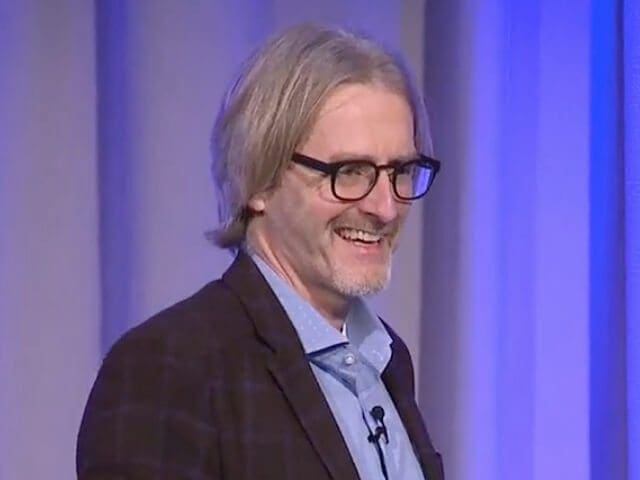Bullfrog Power co-founder Greg Kiessling explains why soft skills are needed for hard-headed business
January 11, 2016

Join us this week at Entrepreneurship 101 as we discuss how to create an action plan that defines how you will reach target customers and achieve competitive advantage. This session is geared for startups that have not yet entered the market.
Green power entrepreneur Greg Kiessling is one of the gentlemen of the business world. He’s soft-spoken, gracious and self-deprecating, but he’s also an entrepreneur, investor and a man who, as co-founder of Bullfrog Power, has helped persuade 10,000 homeowners and 2,000 businesses to pay a premium for green energy. In the business world he’s “been there and done that,” and he recently divulged some of his secrets to success to an audience of several hundred innovators and entrepreneurs at a Lived It Lecture as part of the MaRS Entrepreneurship 101 program.
One of Kiessling’s key points: Never underestimate the importance of so-called soft skills. Here’s what he had to say.
- You can’t play hardball without soft skills.
“Soft skills are more important than any of the other secrets of success,” says Kiessling. Growing a business calls for setting priorities, managing teams, maintaining relationships with clients and investors, negotiating with suppliers, making difficult decisions, having some tough conversations—all areas where people skills are crucial.
- Soft skills aren’t born, they’re made.
The soft skills needed for business are just that: skills. They’re not hard-wired into your personality and they can be learned. “When I was a teenager, I was extremely shy,” says Kiessling, who remembers being afraid to talk to his colleagues at his first job. A stint working in sales forced him to push himself to overcome his natural shyness and learn the skills and techniques needed to close a sale.
- Get some depth to your perception.
Know yourself, but also know those you work with. Kiessling is a big fan of techniques like 360-degree reporting exercises and personality assessments such as the Myers–Briggs Type Indicator. Used correctly, these can be important tools to help teams pinpoint strengths and weaknesses, figure out the most productive ways to share information and make decisions, and to understand why colleagues behave as they do. “Rare is the business that thrives off conflict,” says Kiessling.
- Never stop wondering.
Curiosity drives the entrepreneurial spirit, believes Kiessling. Good ideas are born from an urge to know why something is the way it is and how it can be made better. However, Kiessling pointed out that many people have good ideas—the successful businesses are those that are able to execute them well.
Other tips for the entrepreneur
Know where the buck stops. Kiessling believes a good group of co-founders makes for a stronger business, but he warns against 50/50 partnerships. “Always know who has the final decision,” he says.
Approach financing with care. Venture capitalists understand the instruments of financing a lot better than most entrepreneurs and use this to their advantage, warns Kiessling. If you don’t understand every term on a contract, and its implications—especially when it comes to preferential shares—you probably shouldn’t be in the room negotiating.
Pay for professionals. Kiessling suggests that sometimes it’s worth paying top dollar for professional services. During his early days as a software entrepreneur, his firm was hit with a potentially damaging intellectual property lawsuit. They lawyered up with one of the best firms in Silicon Valley and the other side dropped the suit on catching sight of the legal letterhead and began to negotiate.
Watch excerpts from Greg Kiessling’s presentation
Missed the lecture? You can still catch some of the insights Greg Kiessling shared with us.
Greg Kiessling: From the tech landscape to social innovation
https://vimeo.com/151171346
Greg Kiessling’s Five Secrets for a Successful Startup
https://vimeo.com/151171345
Greg Kiessling: Startup tips you won’t find in a textbook
https://vimeo.com/151198455